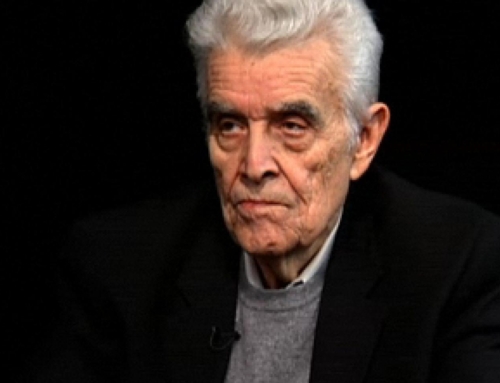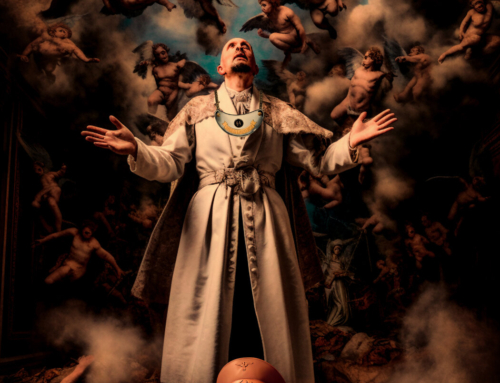The other day on social media a convert to the Catholic faith indulged in a familiar rant–and I sympathize.
This person had visited a charismatic-type Protestant church and said (I paraphrase) “The worship was lively and welcoming. People were happily praising the Lord. There was a joyful spirit and afterward the pastor noticed me, welcomed me and later that day I had a couple of text messages from folks at the church saying how happy there were to see me and hoped I’d be back. Then I went to Mass. The church was nearly empty. Only old people. The priest began by berating the few who were there and complaining that more people didn’t come to Mass. The homily was dull and uninspiring. The music was dreary. No one said hello or welcome. The pastor disappeared afterwards and never greeted me.”
The complaint will be recognized by many converts from Protestantism. Why is the Protestant worship experience so upbeat and positive and Mass so often a downer?
Well, wrong expectations produce disappointment. It is wrong to compare the Protestant service to Mass to start with. It is natural to do so because at first glance they seem comparable: both are groups of Christians meeting for worship. However, on examination the two events are very different.
While many Catholic parishes can certainly do much better at welcoming visitors and evangelization, this is not the primary purpose of Mass.
There are good reasons why the Protestant churches are upbeat and welcoming. Without being too cynical about it, the Protestant churches are in a competitive marketplace. They don’t have the “Sunday Mass obligation” to subsidize attendance. If they are not jolly, welcoming and do not make the worship experience wonderful they will soon be out of business. Protestants vote with their feet. They church shop and a pastor who does not preach well and does not offer what the customers want will soon feel the pinch.
There are other more complicated reasons why Protestant churches seem so good at fellowship. It is because the various Protestant sects seem to gather along doctrinal lines, but in fact they usually gather along social categories. Episcopalians = high end, high income, liberal. Presbyterians=Upper Middle Class graduates. Methodists=Middle Class. Baptists=Middle-Working Class etc. etc. Because they gather along social lines, naturally the “fellowship” is warm hearted and embracing. Birds of a feather flock together. The universality (and diversity) of the Catholic Church makes fellowship more difficult.
So we gather at the altar of the Lord, not along social lines, but our allegiance to the Lord and his Church.
Catholics who go to Mass therefore, expecting a warm fellowship experience, are likely to be disappointed.
What to do about this? The fellowship and camaraderie takes place in the Catholic Church elsewhere. It is in service groups like the pro-life team, the choir, the parish school, St Vincent dePaul, the Food pantry, Knights of Columbus etc etc that warm friendships are made. It is in home groups, devotional groups, prayer groups or third order religious groups that people gather and grow together.
Catholics who like charismatic worship and prayer fellowship may not find that at Mass, but they will find it in their local Cursillo group, the local Charismatic Catholic prayer group or one of the new ecclesial movements like Communion and Liberation or the Neocatechumenate.
A deeper prayer life can be nurtured by joining the third order Carmelites, Franciscans, Dominicans or being a Benedictine oblate.
Finally, I would advise folks not to blame the parish priest too much. He is probably aware that he is not the world’s most stellar preacher and he is probably struggling along with a parish that has many demands and few people to help out. Instead of grumbling about him, he would probably appreciate a few words of thanks and an offer to help out according to one’s gifts.






Just sharing my two cents based on my experiences in Catholic and Protestant circles
While it’s true there are liturgies celebrated sloppily and priests fumbling at the pulpits, it’s unfair to blame the priests and the Mass for failing to win converts and sustain disciples. The lion’s share of the blame falls upon the laity’s lack of initiative, proactiveness in their own faith and missionary spirit, which I see more in Protestant circles. Nevertheless, where I come from (i.e., Southeast Asia), the young Catholic communities are proactive in faith formation and fellowship. Mass attendance is also high, with many young people in the pews. Our Cardinal has done a commendable job implementing the directives of Vatican II.
Having spoken to priests (married and celibate alike), they are often overworked and juggling multiple pastoral responsibilities, which too often people forget. So if you feel the ambience of faith stagnating, step up, open your house for bible study, lead praise and worship, lead catechism classes etc. You don’t come to Mass to be entertained or spoonfed.
That being said, also be careful about community in Protestant circles. Don’t fall in love with the idea of “kingdom friendship” and a sentimentalized “encounter” through concertized service, especially in a megachurch setting. You may be welcomed initially, but when the hype dies down, loneliness settles in and you feel no more than a statistic, lost in a crowd of familiar strangers. So think long term, friendship takes time to develop, and orthodoxy takes priority over sentimentalism.
On a final note, Protestants are correct about one important thing – A personal relationship with Jesus. This is how the proactive community spirit is developed. Come to think of it, having that authentic personal relationship also does make the Eucharist come alive. No longer do the rituals of the Mass seem meaningless.